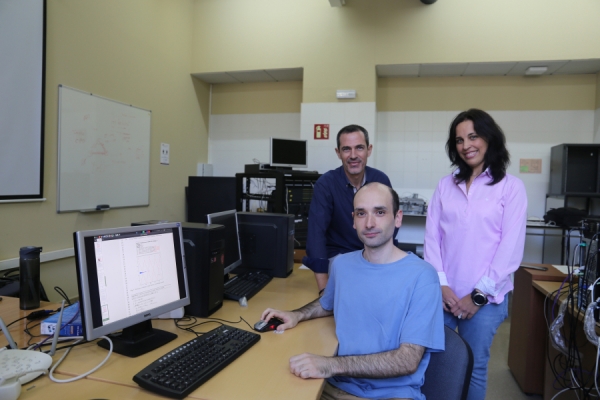Distance education has democratized access to knowledge, overcoming problems of time and space. The flexibility and accessibility of this type of system has increased the number of people educated via online platforms. However, due to its large numbers of students, and the lack of the kind of close interaction that classrooms make possible, professors face a big problem: the difficulty of monitoring and adapting learning to their students.
Tools based on Artificial Intelligence can help professors predict their students' performance so that they can adapt their educational strategies to their different learning situations.
To facilitate this adaptation and improve online education, a team from the University of Córdoba formed by researchers Juan Carlos Gámez, Aurora Esteban, Francisco Javier Rodríguez and Amelia Zafra has developed an algorithm that predicts student performance, with four different classifications. Compared to previous models, which predicted this performance only in terms of "passing or failing" or "dropping out or continuing" the course, "this algorithm, based on ordinal classification and fuzzy logic, allows us to predict students' performance while maintaining the order relationships between the categories: dropping out, failure, passing and distinction," explainedAmelia Zafra, a researcher in the UCO's Department of Computer Science and Numerical Analysis.
In this way, the FlexNSLVOrdalgorithm makes better predictions, but also allows professors to better adapt their strategies depending on their students' classifications.
The two advantages offered by this development are the use of ordinal classification with a cost matrix that makes it possible to model the weight of ordinal classes in learning and to make this rankingmore specific. Adapted fuzzy logic, explained UCO Department of Electronic and Computer Engineering researcher Juan Carlos Gámez "allows you some flexibility since, compared to standard logic, which works with specific values, fuzzy logic works with a range of them, and it automatically adapts to the problem using reasoning closer to what we do in our daily lives."
The model is fueled by the data that the online teaching system generates. The characteristics that it takes into account to predict performance are, for example, the completion of specific tasks and questionnaires, students’ grades, and their clicks on the different resources available on the platform.
For researchers, "interpretability" is also key; that is, the possibility of understanding the results that it yields. After tracking students' behavior, the model performs the classification, but also makes itself understood, since "compared to black box algorithms, which tell you if the student will pass or drop out, but don't tell you how or why," this new tool "provides a series of rules for each category, showing the most relevant resources and activities that the student must perform," Zafra explained. Thus, the algorithm could help educators identify students, and be able to use reinforcements or strategies that "for example, rescue students with problems."
In fact, the algorithm even allows professors to determine which types of characteristics are decisive, and which are not, in terms of gauging performance. "Perhaps there's a task that the professor thought was important for this, but it turns out that it's not pivotal to whether the student will ultimately pass or fail," adds Francisco Javier Rodríguez, also a researcher in the UCO's Department of Electronic and Computer Engineering.
The algorithm has been tested using a very large set of freely available Open University Public Learning Data (OULAD) from a large sample of students and courses. In the future this algorithm could be included as an application on online education platforms (like Moodle), and could automatically provide educators with feedback on their students' performance.
Reference
Gámez-Granados, J.C., Esteban, A., Rodríguez-Lozano, F.J. et al. An algorithm based on fuzzy ordinal classification to predict students' academic performance. Appl Intell (2023). https://doi.org/10.1007/s10489-023-04810-2


